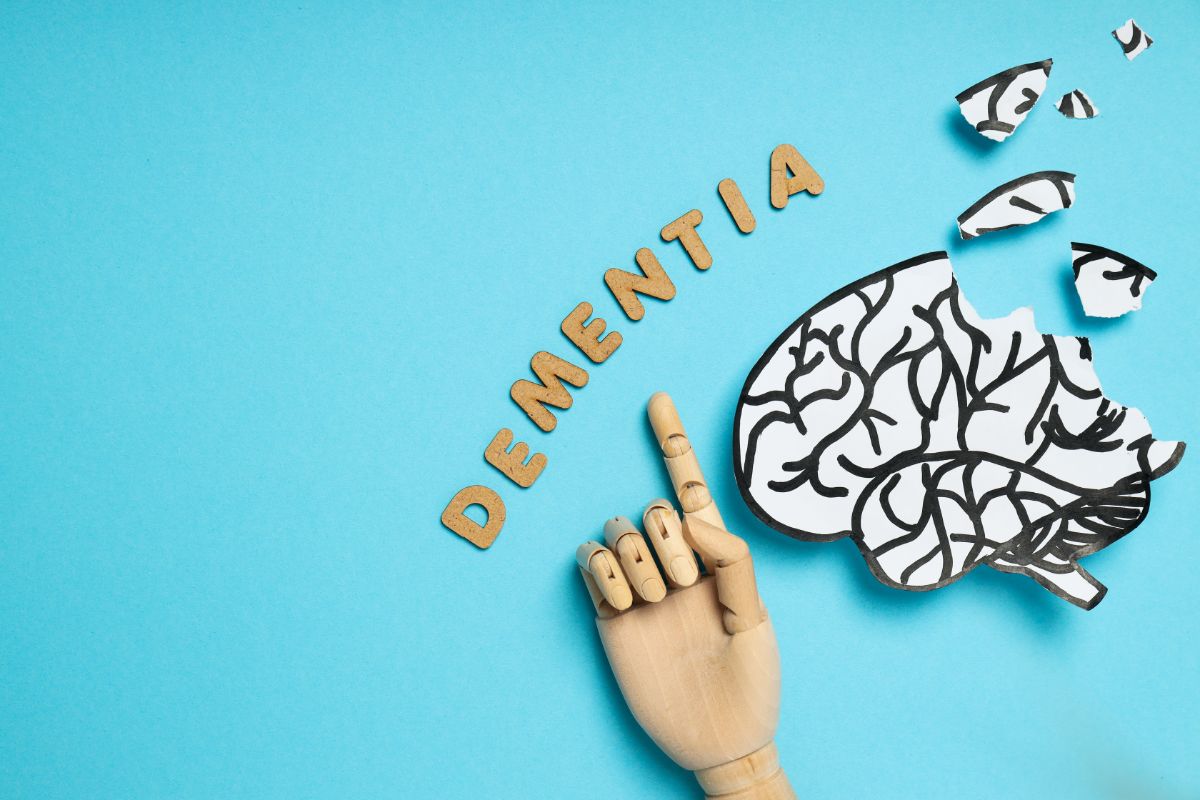Overview
- The article introduces the topic of dementia in women, emphasizing the unique challenges they face due to biological and sociocultural factors.
- In dementia, memory loss and disorientation are prevalent, and social withdrawal, repetitive behavior, planning difficulties, and poor judgment are key issues.
- Bacopa Monnieri, a natural supplement, may improve memory and cognitive function by inhibiting harmful enzymes and reducing amyloid fibers linked to Alzheimer’s.
With how intricate the human brain works, instances of memory lapses and cognitive deviations periodically manifest. Yet, as we study the complexity of cognitive health, a phenomenon emerges—dementia.
In this field, women, influenced by both unique biological and sociocultural factors, experience a distinctive trajectory through the intricate challenges of cognitive decline.
To shed light on this disease that affects millions worldwide, in this article, we will uncover the early signs of dementia in women. By understanding these signs, we can help and offer hope as we face the challenges ahead.

One of the most prominent and readily noticeable factors in women affected by dementia is the impairment of memory, particularly the disruption of short-term memory.
As documented by the United States National Library of Medicine in 2006, highlights the intricate connection between this cognitive change and the degeneration of specific neural structures in the brain, which are crucial for memory consolidation and retrieval.
Early in the disease’s progression, individuals often struggle to recall recent events, conversations, or appointments. Recognizing this decline is essential for timely dementia recognition and initiating interventions, ultimately mitigating cognitive decline and preserving cognitive well-being.
Disorientation is confusion about time, place, or self, often caused by illness or drugs, leading to incoherence, agitation, and hallucinations.
For instance, a 75-year-old woman Instead of returning home, got lost and couldn`t find her way home, even though it was a familiar place. She didn’t remember the date or time and when she returned, she started making breakfast at midnight thinking it was morning. This illustrates how dementia can lead to disorientation in women’s daily lives.
Due to women’s longer life expectancy, age is a key risk factor for dementia. Older women may struggle to recognize familiar environments, leading to disorientation in their surroundings and difficulties in maintaining a clear sense of time and date.

Social withdrawal is a notable precursor in the progression of dementia.
Social isolation, defined as limited social interactions, is associated with a 27% higher risk of dementia in older adults. This connection is linked to reduced cognitive stimulation, chronic stress, mental health impact, and unhealthy lifestyle choices. Encouraging social engagement can help mitigate this risk and enhance overall well-being.
Repetitive behavior in dementia is often associated with both women and men, but it might appear more prominently in women due to several factors.
Women tend to have a higher prevalence of dementia. Repetition can be linked to memory loss, anxiety, or confusion. Women’s longer life expectancy also means they might live with dementia for a more extended period, increasing the likelihood of exhibiting repetitive behaviors.
According to the National Library of Medicine (2014), individuals in the early stages of dementia grapple with the complexities of intricate planning, time management, and problem-solving skills as a result of cognitive impairment.
For example, a woman in the early stages of dementia may have difficulty planning and remembering to take her medications as prescribed. She might forget whether she’s already taken a dose or mixed up medications, potentially impacting her health and well-being.
The inability to effectively plan and execute daily activities not only compromises personal independence but also underscores the critical importance of early detection.
Poor judgment is closely related to dementia, particularly in the context of cognitive impairment and its impact on decision-making abilities.
For instance, a woman with dementia may face challenges related to personal safety and daily living. She might forget to lock doors or windows, which could make her vulnerable to security risks.
In addition, she may struggle with financial decisions, potentially leading to financial exploitation or mismanagement of resources.
Wondering what you can do to prevent dementia?
Bacopa Monnieri, a revolutionary natural supplement, has long been recognized for its benefits on memory and cognitive function. Recent studies highlight its potential in treating Alzheimer’s disease.
It inhibits the harmful enzyme cholinesterase, linked to cognitive decline, reduces the formation, and removes existing amyloid fibers, which are believed to contribute to Alzheimer’s disease.
This herbal remedy not only improves cognitive function but also promotes serenity and relaxation, making it a top choice for those who want to protect and maintain their cognitive health.
Recognizing early signs of dementia in women is crucial for early intervention. Bacopa Monnieri, a natural supplement, can help protect cognitive health. It boosts cognitive function, fights inflammation, and enhances emotional well-being while reducing oxidative stress.
For those worried about cognitive health, Bacopa Monnieri is a proactive choice to maintain mental sharpness and emotional well-being. Purchase Bacopa Monnieri for peace of mind. Contact our team today!

Overview This article talks about the different stages of dementia and

What are the early symptoms of dementia? Memory loss that disrupts eve

Overview Alzheimer’s disease can be influenced by genetics, but

What are the characteristics of Alzheimer’s disease? Memory loss Dif